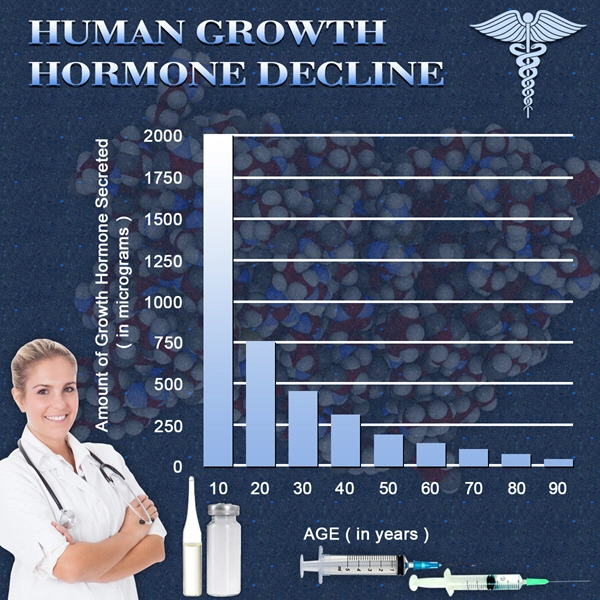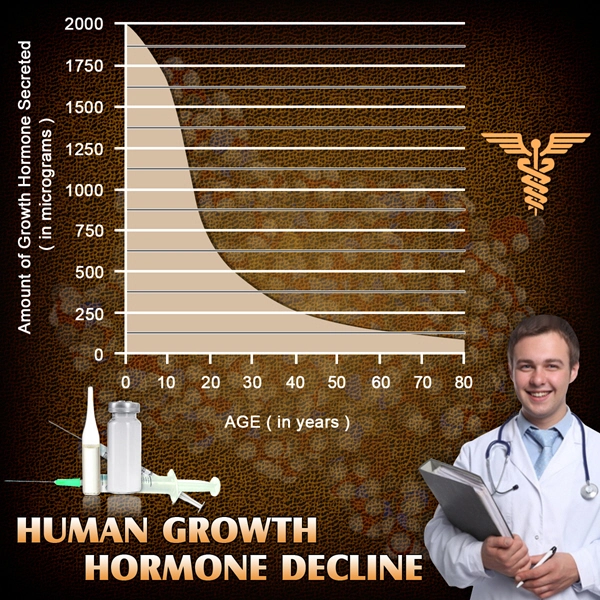 Daylight Savings Time recently ended, and we're now entering the shortest months of the year. The adjustment from Daylight Savings Time to Standard Time can be jarring. The Circadian Rhythm is flexible, but the rapid change in time can lead to feelings of fatigue, leading to problems with energy and motivation, and feeling exhaustion. Most of us understand this phenomenon as seasonal depression.
Daylight Savings Time recently ended, and we're now entering the shortest months of the year. The adjustment from Daylight Savings Time to Standard Time can be jarring. The Circadian Rhythm is flexible, but the rapid change in time can lead to feelings of fatigue, leading to problems with energy and motivation, and feeling exhaustion. Most of us understand this phenomenon as seasonal depression.
Many people already have issues with fatigue and exhaustion, especially those with Hormone Imbalance. In this article, we will discuss how longer nights and shorter days impact energy levels and what you can do to protect your focus, stay productive, and ward off that desire to hibernate the winter away!
What Causes Feelings of Fatigue to Become Overwhelming in Winter?
Melatonin Imbalance—Melatonin is the primary hormone involved in controlling the sleep-wake cycle. As days get shorter, we produce more melatonin, which makes it harder to stay awake. The time change can lead to further melatonin dominance, as our bodies experience darkness an hour earlier in the sleep-wake cycle than before. Melatonin production is suppressed by the blue-light associated with daytime, and production increases as night falls. This can also lead to increased feelings of sadness and depression.
Vitamin D Deficiency—Shorter days also impact the body's ability to produce Vitamin D. Vitamin D Deficiency is strongly characterized by fatigue, because the vitamin is integrally important in the process of energy production, specifically in the function of the mitochondria. Luckily, Vitamin D can be stored by the body, as it's fat soluble. In spite of that, it's very common for people to struggle with the effects of Vitamin D Deficiency, especially in parts of the world that get less sunlight due to axial tilt or regional weather patterns. People that work primarily indoors or live a sedentary lifestyle are particularly at risk of Vitamin D Deficiency. It's really to your benefit to get your vitamin D levels tested on an annual basis, especially around the winter time.
Poor Eating Habits—Seasonal changes in eating habits can exacerbate these issues and further suppress vitality. It's common for people to use comfort foods as a crutch to stimulate happiness and reward centers in the brain as shorter, colder months reduce opportunities for healthier means to produce the chemicals that make us feel good. The combo of Thanksgiving and Christmas exacerbate this by giving ample opportunity to pig out and eat feelings away. Stick to the healthy foods that you enjoy and consider meal prepping to stick to proper nutrition and nourishment.
Low Activity Level—On the flip side, shorter days mean less time for outdoor physical activity. Colder days can make even going outside feel like a chore, leading us to stay sedentary and bundled up rather than going out to experience nature. This combination of factors can make the winter months a real drag, and the transition to Standard Time from Daylight Savings is the best time to proactively protect yourself from seasonal fatigue and the winter blues.
Tips On How to Protect Energy Levels in Winter
Get Plenty of Daylight—Take advantage of your opportunities to get some sunlight when you can. It's easy to get caught up in your daily activities and forget to make time for sunshine. Fifteen to twenty minutes per day can massively improve your Vitamin D production. Also, open blinds and let in more natural light. Exposure to sunlight, even indirectly, will help keep your Circadian Rhythm calibrated. Consider committing to a daily walk, even if it's freezing outside -- just bundle up!
Keep Active and Exercise—The changing seasons can easily get you off track on your fitness goals. It's important to not let the shorter, colder days get in the way of an active routine. Even if you aren't the outdoorsy type, a quick walk every day can do a lot to keep you energetic and full of verve. Exercise also stimulates the production of critical hormones associated with energy, including Testosterone and Growth Hormone.
Concentrate on Good Eating Habits—We all know how easy it is to give in to the quick pleasure of junk food and simple carbs. These crutches give us a quick burst of calories, but don't provide us with consistent energy or dense calories. Keep your focus on a balanced diet that's full of nutrition during the winter months. Opt for complex carbs to provide your body with a consistent source of energy. Your body breaks down white sugar and flour, and simple starches quickly, making them more likely to go to your waistline than to your energy needs. Complex carbs take time to break down,make you feel more full, and provide a more stable source of energy.
Get the Most Out of Your Sleep—The time change makes it a necessity to take steps to preserve optimal sleeping habits. The light that you let in during the day makes your body switch to night-mode more easily. Limit exposure to sources of artificial blue-light sources at night to keep your brain in rhythm. Poor sleeping habits contribute to significant Hormone Imbalance and lead to increased risk of Chronic Fatigue.
Could Hormone Imbalance Be Making Your Seasonal Fatigue Worse?
The winter months can really make it harder to feel like yourself. There are a lot of factors at play which lead you to feeling tired, dull, and listless. Hormone Imbalances such as Human Growth Hormone Deficiency and Low-T have some of the same effects. As you get older, it's important to recognize the effects that this combination of factors can have on your well-being.
Both Testosterone and HGH have powerful metabolic effects designed to keep you sharp, focused, and full of vitality, and avoid the feelings of exhaustion. Studies show that Low-T can have a measurable impact on emotional wellness and cognitive function. For patients diagnosed with Testosterone Deficiency, Bio-Identical Testosterone Therapy can greatly improve energy levels and focus while bolstering confidence and feelings of self-worth. HGH Therapy can help patients with Hypopituitarism achieve improved mood stability and unlock the energy stored in body fat to help you keep your brain and body more active.
If you feel that the changing seasons are taking a particularly hard toll on you this year, consider reaching out to a professional. Our Board-Certified HRT Professionals can help diagnose Hormone Imbalance, and also offer high-quality pharma-grade supplements that can help you overcome Vitamin D Deficiency, Melatonin Imbalance, and other issues which may be making your seasonal issues worse. Give our Licensed Hormone and Wellness Clinic a call today!
References
Women’s Health: 25 Hormone Imbalance Symptoms and Signs, Including Exhaustion

- Human Growth Hormone Injections In Cheyenne [Last Updated On: May 25th, 2025] [Originally Added On: October 19th, 2018]
- Human Growth Hormone Injections In Madison [Last Updated On: May 31st, 2025] [Originally Added On: October 19th, 2018]
- Human Growth Hormone Injections In Vancouver [Last Updated On: February 24th, 2025] [Originally Added On: October 19th, 2018]
- Human Growth Hormone Injections In Tacoma [Last Updated On: February 25th, 2025] [Originally Added On: October 19th, 2018]
- Human Growth Hormone Injections In Spokane [Last Updated On: February 26th, 2025] [Originally Added On: October 19th, 2018]
- Human Growth Hormone Injections In Bellevue [Last Updated On: February 26th, 2025] [Originally Added On: October 19th, 2018]
- Human Growth Hormone Injections In Richmond [Last Updated On: May 31st, 2025] [Originally Added On: October 19th, 2018]
- Human Growth Hormone Injections In Portsmouth [Last Updated On: June 1st, 2025] [Originally Added On: October 19th, 2018]
- Human Growth Hormone Injections In Norfolk [Last Updated On: June 1st, 2025] [Originally Added On: October 19th, 2018]
- Human Growth Hormone Injections In Hampton [Last Updated On: March 27th, 2025] [Originally Added On: October 19th, 2018]
- Human Growth Hormone Injections In Chesapeake [Last Updated On: March 27th, 2025] [Originally Added On: October 19th, 2018]
- Human Growth Hormone Injections In Alexandria [Last Updated On: March 28th, 2025] [Originally Added On: October 19th, 2018]
- Human Growth Hormone Injections In Montpelier [Last Updated On: June 2nd, 2025] [Originally Added On: October 19th, 2018]
- Human Growth Hormone Injections In Provo [Last Updated On: June 2nd, 2025] [Originally Added On: October 19th, 2018]
- Human Growth Hormone Injections In Waco [Last Updated On: June 7th, 2025] [Originally Added On: October 19th, 2018]
- Human Growth Hormone Injections In Richardson [Last Updated On: June 5th, 2025] [Originally Added On: October 19th, 2018]
- Human Growth Hormone Injections In Plano [Last Updated On: June 6th, 2025] [Originally Added On: October 19th, 2018]
- Human Growth Hormone Injections In Pasadena [Last Updated On: June 4th, 2025] [Originally Added On: October 19th, 2018]
- Human Growth Hormone Injections In Midland [Last Updated On: June 7th, 2025] [Originally Added On: October 19th, 2018]
- Human Growth Hormone Injections In Mesquite [Last Updated On: June 4th, 2025] [Originally Added On: October 19th, 2018]
- Human Growth Hormone Injections In McKinney [Last Updated On: June 3rd, 2025] [Originally Added On: October 19th, 2018]
- Human Growth Hormone Injections In McAllen [Last Updated On: June 8th, 2025] [Originally Added On: October 19th, 2018]
- Human Growth Hormone Injections In Lubbock [Last Updated On: June 6th, 2025] [Originally Added On: October 19th, 2018]
- Human Growth Hormone Injections In Lewisville [Last Updated On: June 5th, 2025] [Originally Added On: October 20th, 2018]
- Human Growth Hormone Injections In Laredo [Last Updated On: June 3rd, 2025] [Originally Added On: October 20th, 2018]
- Human Growth Hormone Injections In Killeen [Last Updated On: February 18th, 2025] [Originally Added On: October 20th, 2018]
- Human Growth Hormone Injections In Irving [Last Updated On: February 19th, 2025] [Originally Added On: October 20th, 2018]
- Human Growth Hormone Injections In Garland [Last Updated On: February 20th, 2025] [Originally Added On: October 20th, 2018]
- Human Growth Hormone Injections In Denton [Last Updated On: February 21st, 2025] [Originally Added On: October 20th, 2018]
- Human Growth Hormone Injections In Carrollton [Last Updated On: June 8th, 2025] [Originally Added On: October 20th, 2018]
- Human Growth Hormone Injections In Brownsville [Last Updated On: February 21st, 2025] [Originally Added On: October 20th, 2018]
- Human Growth Hormone Injections In Beaumont [Last Updated On: February 18th, 2025] [Originally Added On: October 20th, 2018]
- Human Growth Hormone Injections In Austin [Last Updated On: February 22nd, 2025] [Originally Added On: October 20th, 2018]
- Human Growth Hormone Injections In Arlington [Last Updated On: February 20th, 2025] [Originally Added On: October 20th, 2018]
- Human Growth Hormone Injections In Amarillo [Last Updated On: February 19th, 2025] [Originally Added On: October 20th, 2018]
- Human Growth Hormone Injections In Abilene [Last Updated On: February 22nd, 2025] [Originally Added On: October 20th, 2018]
- Human Growth Hormone Injections In Nashville [Last Updated On: February 27th, 2025] [Originally Added On: October 20th, 2018]
- Human Growth Hormone Injections In Murfreesboro [Last Updated On: February 27th, 2025] [Originally Added On: October 20th, 2018]
- Human Growth Hormone Injections In Memphis [Last Updated On: February 28th, 2025] [Originally Added On: October 20th, 2018]
- Human Growth Hormone Injections In Knoxville [Last Updated On: February 28th, 2025] [Originally Added On: October 20th, 2018]
- Human Growth Hormone Injections In Clarksville [Last Updated On: March 1st, 2025] [Originally Added On: October 20th, 2018]
- Human Growth Hormone Injections In Chattanooga [Last Updated On: March 1st, 2025] [Originally Added On: October 20th, 2018]
- Human Growth Hormone Injections In Erie [Last Updated On: March 29th, 2025] [Originally Added On: October 20th, 2018]
- Human Growth Hormone Injections In Allentown [Last Updated On: March 28th, 2025] [Originally Added On: October 20th, 2018]
- Human Growth Hormone Injections In Salem [Last Updated On: March 2nd, 2025] [Originally Added On: October 20th, 2018]
- Human Growth Hormone Injections In Portland [Last Updated On: March 2nd, 2025] [Originally Added On: October 20th, 2018]
- Human Growth Hormone Injections In Gresham [Last Updated On: March 3rd, 2025] [Originally Added On: October 20th, 2018]
- Human Growth Hormone Injections In Eugene [Last Updated On: March 3rd, 2025] [Originally Added On: October 20th, 2018]
- Human Growth Hormone Injections In Tulsa [Last Updated On: March 4th, 2025] [Originally Added On: October 20th, 2018]
- Human Growth Hormone Injections In Norman [Last Updated On: March 4th, 2025] [Originally Added On: October 20th, 2018]
- Human Growth Hormone Injections In Toledo [Last Updated On: May 27th, 2025] [Originally Added On: October 20th, 2018]
- Human Growth Hormone Injections In Dayton [Last Updated On: May 29th, 2025] [Originally Added On: October 20th, 2018]
- Human Growth Hormone Injections In Columbus [Last Updated On: May 29th, 2025] [Originally Added On: October 20th, 2018]
- Human Growth Hormone Injections In Akron [Last Updated On: May 30th, 2025] [Originally Added On: October 20th, 2018]
- Human Growth Hormone Injections In Paterson [Last Updated On: February 23rd, 2025] [Originally Added On: October 20th, 2018]
- Human Growth Hormone Injections In Reno [Last Updated On: February 24th, 2025] [Originally Added On: October 20th, 2018]
- Human Growth Hormone Injections In Henderson [Last Updated On: February 25th, 2025] [Originally Added On: October 20th, 2018]
- Human Growth Hormone Injections In Omaha [Last Updated On: May 26th, 2025] [Originally Added On: October 20th, 2018]
- Human Growth Hormone Injections In Lincoln [Last Updated On: May 26th, 2025] [Originally Added On: October 20th, 2018]
- Human Growth Hormone Injections In Billings [Last Updated On: May 27th, 2025] [Originally Added On: October 20th, 2018]
- Human Growth Hormone Injections In Springfield [Last Updated On: May 28th, 2025] [Originally Added On: October 20th, 2018]
- Human Growth Hormone Injections In Independence [Last Updated On: June 9th, 2025] [Originally Added On: October 20th, 2018]
- Human Growth Hormone Injections In Columbia [Last Updated On: May 28th, 2025] [Originally Added On: October 20th, 2018]
- Human Growth Hormone Injections In Jackson [Last Updated On: May 30th, 2025] [Originally Added On: October 20th, 2018]
- Human Growth Hormone Injections In Rochester [Last Updated On: February 23rd, 2025] [Originally Added On: October 20th, 2018]
- Human Growth Hormone Injections In Warren [Last Updated On: March 5th, 2025] [Originally Added On: October 20th, 2018]
- Human Growth Hormone Injections In Lansing [Last Updated On: March 5th, 2025] [Originally Added On: October 20th, 2018]
- Human Growth Hormone Injections In Flint [Last Updated On: March 6th, 2025] [Originally Added On: October 20th, 2018]
- Human Growth Hormone Injections In Worcester [Last Updated On: March 29th, 2025] [Originally Added On: October 20th, 2018]
- Human Growth Hormone Injections In Springfield [Last Updated On: March 30th, 2025] [Originally Added On: October 20th, 2018]
- Human Growth Hormone Injections In Lowell [Last Updated On: March 30th, 2025] [Originally Added On: October 20th, 2018]
- Human Growth Hormone Injections In Cambridge [Last Updated On: March 31st, 2025] [Originally Added On: October 20th, 2018]
- Human Growth Hormone Injections In Augusta [Last Updated On: March 6th, 2025] [Originally Added On: October 20th, 2018]
- Human Growth Hormone Injections In Shreveport [Last Updated On: March 7th, 2025] [Originally Added On: October 20th, 2018]
- Human Growth Hormone Injections In Lafayette [Last Updated On: March 7th, 2025] [Originally Added On: October 20th, 2018]
- Human Growth Hormone Injections In Louisville [Last Updated On: March 8th, 2025] [Originally Added On: October 20th, 2018]
- Human Growth Hormone Injections In Lexington [Last Updated On: March 8th, 2025] [Originally Added On: October 20th, 2018]
- Human Growth Hormone Injections In Wichita [Last Updated On: March 9th, 2025] [Originally Added On: October 20th, 2018]
- Human Growth Hormone Injections In Topeka [Last Updated On: March 9th, 2025] [Originally Added On: October 20th, 2018]
- Human Growth Hormone Injections In Olathe [Last Updated On: March 10th, 2025] [Originally Added On: October 20th, 2018]



List of USA state clinics - click a flag below for blood testing clinics.
Word Count: 1122


















































